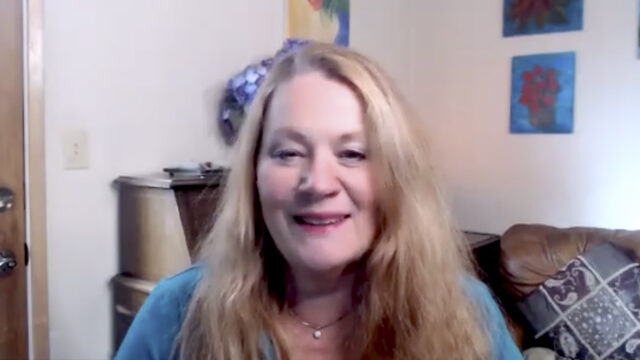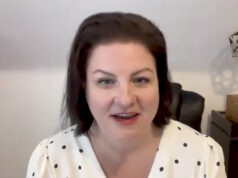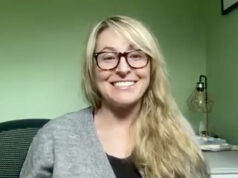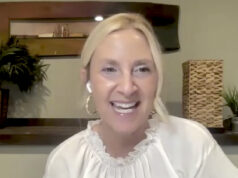Suzanne: And welcome back everyone to Answers for Elders Radio Network, a podcast network now heard on all your major podcast platforms. And also on Answers for Elders and SeniorResource.com. We also have a national radio show in 24 different cities across the USA. And we’re very excited today to have Faith Marshall, who is a dementia family coach. She works with families as they’re navigating a very complicated world of dementia and Alzheimer’s. Faith has her own story with her own parents. We’re talking about a very important topic this hour and that is senior elder scams. It’s very sad we have to have this conversation, because it’s very overwhelming, and yet it happens every single day. I hear of it constantly, as you can imagine, in my world. So Faith tell us a little bit. I know you shared a little bit of story about your, your parents. Again, they were very trusting. Do you have any like what are ways in which families can help protect their loved ones?
Faith Marshall: I think the first step is getting our seniors to be open with their families. And mom and dad tried to hide things when they thought they did something wrong. So we have to be proactive as a family member and be a little bit snoopy. Working with the banks were very helpful to monitor, have online banking. I mean, my parents had no knowledge of online banking, passwords or any of that, but we set it up so that it went to my brother and he would just monitor it and see what was going on. So that if there was a charge, he had a chance to stop it. In terms of cash, cash flow, he managed the cash flow by minimizing what was attached to the debit card. And then neighbors are a big help, when neighbors see contractors showing up, or different things that might look suspicious, they were great at sending us an email or even a phone call. So it takes a network to help protect them. They don’t know they’re vulnerable. And that’s where really knowing the neighbors surrounding our loved ones is very helpful when they’re independently living. Right? And you’ve got staff in the various assisted living in different homes that, that can help assist with that too.
Suzanne: What you’re saying is, yes, we have to be watchdogs, but there’s also some things that we could do. I know with my mother, she had one debit card for all of her accounts, for her big major checking account, and there was like $75,000 in there at one time. So we can ask the bank, and this is something that I think is very valuable in many ways, to set up a separate bank account that only has a limit of so much funds in it. And the main reason why we can do that is not only to protect your loved one against fraud, but let’s say you have a family caregiver that you want him to go buy groceries for you. Maybe they need to fill your car up with gas. So you can give them that card, and that helps you put a small limit on it. So that’s the card that they hang on to, and then give the major bank account card to that loved one. Then it’s just easy. It’s not a big deal and there’s certain times when as a family caregiver, if you want to transfer more money to that bank account, they can call you and say mom, if you need something else, I’ll go ahead and transfer the funds over. The nice thing about that is it’s still giving them their dignity, their autonomy, having their own debit card. But it’s also giving them the opportunity to say, “I’m gonna monitor this for you. You just let me know if you need more money.” And that’s a way to honor, to provide dignity. And I think that’s one of the things that I encourage families to do. Exactly. And that’s exactly what we did with mom and dad, and you can have a separate card, or two cards, for an account, so that your caregiver has their own card as well, or a different, a duplicate card in, in the same name.
Faith Marshall: And then we partnered with the bank. Every bank is different. So we alerted the bank to make notes on the account, alerting family if there was a large withdrawal. Unfortunately, we didn’t do that until after the second time it happened.
Suzanne: Wow. And so it did happen to you a second time.
Faith Marshall: Yeah. So about six months after the brake fluid incident, somebody came and knocked on the door right after dad left to go for a walk, and they knew their name. So they told mom, “Walt wants us to fix the roof. Is he here?” Well, they knew he wasn’t. And so then she told them he wasn’t there and wound up getting in the car with them and going with them up to the bank again to get this time to get $2,500. After the fact she said she realized at some point it was very similar, she was in the early stages of dementia, and she was scared, but she was afraid of what would happen if she didn’t follow through. So she didn’t understand why they didn’t come into the bank with her. Well, it’s all the security cameras and they waited in the car and she talked about his daughter sitting in the back seat reading a Bible. So she felt very comfortable with them and, uh, came back to the house, and the guy took a two by four and shoved it up through the covered porch to show her that it was rotten and it needed to be fixed and created that sense of need.
“Then when the police report was filed, and the police came, they’re the ones who alerted us to the fact that there is a whole network. It was not the same people, totally different people, different faces for her. And you don’t get the money back. It’s like any other theft, they go looking for them. So after that point, mom was a lot more receptive to having our help with the finances and changing the bank account and adding a signer. So I was a signer for one of her accounts, as my brother was a signer for another account. So when the bank called, we could put a stop on something that was happening.
Suzanne: And just as an FYI, we work with many attorneys here at Answers for Elders. If you are a signer on your parents bank account, make sure that you have a power of attorney authorization. If you do not, you are partially liable for anything that could happen. And that’s a whole other story that we could get into with an attorney. But we have several stories of, “Oh, yeah, I’m just a signer in my parents’ bank account.” But in one case, we had a gentleman that was driving, and shouldn’t have been driving, hit someone in a crosswalk, and he was in the hospital. And not only did the older gentleman get sued, but so did the son, because he was a signer on the bank account. So make sure that you have an active power of attorney if you are on a checking account, because we did financially library.
Faith Marshall: We did, but I, I didn’t realize that would be tied to the legal side of it.
Suzanne: Yes. So that’s a whole other story. So make sure when we start talking about that, I want to make sure that everybody knows, don’t be a signer on account unless you have documentation.
Faith Marshall: You definitely have to dot all your I’s and cross all your Ts.
Suzanne: So now getting into how people operate, again, we’re talking networks. This is no longer individuals and, and certainly we have individuals and we can talk about that till the cows come home, of how older men can be victimized by young women that come in to be a caregiver. And all of a sudden they’re turning over their bank account. All of these things that are happening. It seems to me Faith like they prey on people who are lonely, in many cases, or vulnerable. If your loved one is lonely or vulnerable, they are prime targets, especially if they’re craving company, you don’t necessarily know.
“The other thing that I’m really, really, adamant about is don’t hire a caregiver to take care of someone off of Craigslist or a site like that. Make sure you hire a reputable home care agency that is licensed bonded and insured, don’t do this independent thing. Even though they go on some of these sites and see I’m gonna be a caregiver, and I’m gonna sign up on this site. Yes, you could be background-checked, but your intent could be to hurt someone. Make sure that they are licensed bonded and insured, make sure that they have the credentials in their background, and references. You just want to make sure that your loved ones are protected.
Faith Marshall: And too many times as you mentioned, the seniors are very trusting and if they like the person and those scam artists are really good at being liked, they like the person, if they’re only gonna charge him $10 an hour instead of $20, they know how to work it. It also brings up the mindset of jewelry and what jewelry you’re wearing. Another situation that I just became aware of was a woman had her favorite diamond ring on, went to the grocery store, and people were circling the parking lot and held her up at gunpoint to steal her ring. And so, being mindful, turning that diamond inside, so it just looks like a playing gold band and it’s like you said, we don’t want to project that fear, but we do have to be cautious and not be flashy. Shop with a friend, go with a neighbor just be mindful about your surroundings and who’s around you and paying attention to who’s watching you, who’s following you. the cars, you know, all of that. Like we learn on the crime shows, but it’s really sad because like you said, they’re lonely, somebody’s gonna strike up a conversation with them.
Suzanne: Also just reminding everyone, just be mindful. We’re gonna definitely give this number out again for anybody if you realize that you’ve been taken advantage of, there are things you can do. Number one, if you purchase something with a credit card, you probably can file a claim with your bank, and your bank can usually refund money if it’s a regular business, or something like that. Never give somebody cash. Never, never, never. If they are a reputable business, they will be able to take a card, and that’s important. And our AARP’s Fraud Watch Network Helpline is 877-908-3360. And Faith, you can be reached at what email address?
Faith Marshall: The email would be [email protected], and phone number (855) 36FAITH.
Suzanne: Wonderful. And Faith and I will be right back, right after this.













